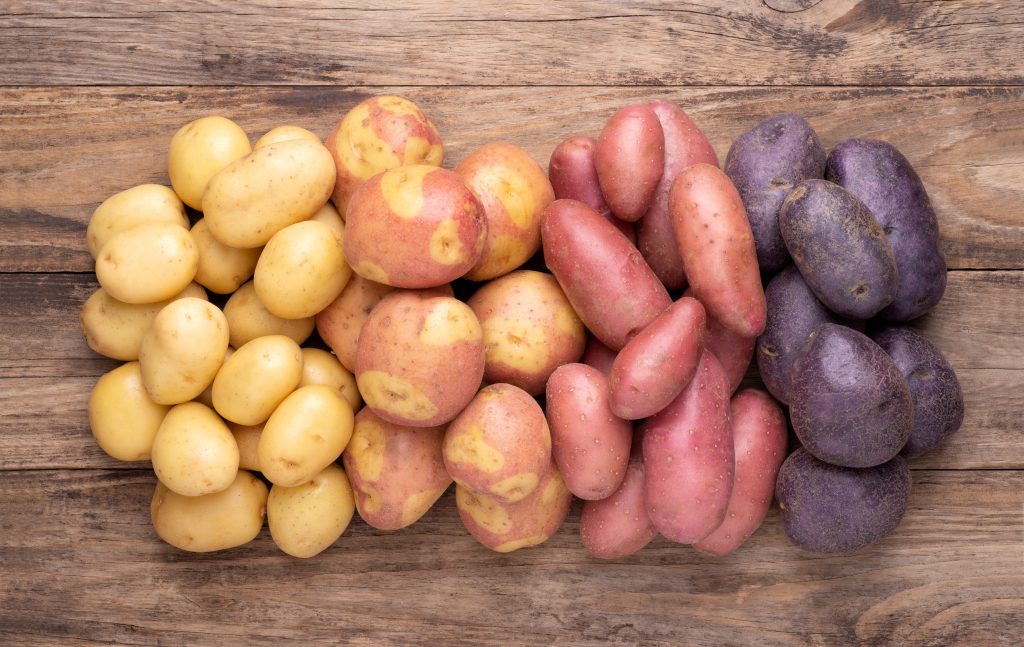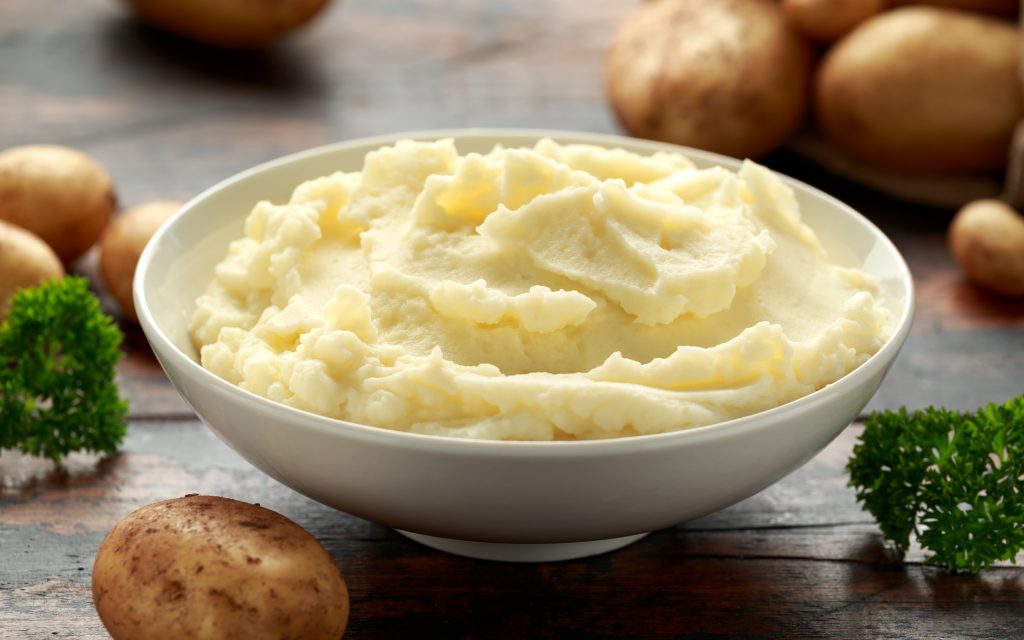
Everything You Should Know About Potatoes
No one, literally, no one in this world can hate potatoes. These heavenly vegetables produce such glorious, satisfying meals, such as fries, potato crisps, baked potatoes, and so much more. Potato is the only go-to option that helps you survive through the thick and thin of a food-passionate life.
Trust me, when I say, potatoes are lifesavers. Need a quick snack? Get yourself some fries or crisps. Need to prepare an easy item for tea? Make some potato-filled sandwiches or pinwheels. Need to satisfy your midnight cravings? Boil some potatoes, mash them with a weapon of choice, pour in bulks of butter or cheese, add teeny weeny salt, and voila! Your life just got better.
Well, it is quite undeniable and undebatable that potatoes are the tastiest vegetables. But did you know that they are healthy too? Huh, told you, potatoes are indeed the best. Read further to find amazing potato facts that will help deepen your love for them!
Potato & It’s Varieties
By definition, potato is a root vegetable, which is native to America. (No wonder, almost all the finger-licking good potato recipes are present in the American cuisine!) It is an integral part of various cuisines and food cultures—also, the fourth-largest crop of the world.
Due to extensive consumption, almost every country produces its own potato harvest. Hence, attributing to the presence of 5000 different potato types. Here are some primary and easily accessible types with features.
- Red – It has a thin skin and remains firm when cooked.
- Russet – It has thick skin with a fluffy and light center.
- Yellow – It has a creamy texture and a buttery flavor.
- Purple – It has vibrant and moderately thick skin with an earthly flavor.
- White – It has thin skin, nutty flavor, and remains firm when cooked.

Nutrition
Potatoes happen to be a complete pack of energy. An average-sized potato brings you a substantial boost of energy. Plus, it brings that fulfilling feeling almost immediately. Do you know why exactly?
Well, that’s because an average potato promises 20.1 grams of carbohydrates and 87 calories. It also makes it one of the foodstuffs with a high glycemic index. Thus, it’s not very suitable for diabetic patients.
Moreover, it provides with 1.8 grams of fiber and 1.9 grams of protein. As compared to the carb content, this is not really high. However, it still is a considerable amount and benefits the body greatly. In terms of minerals and vitamins, it provides:
- Vitamin C
- Vitamin B6
- Folate
- Potassium
Even more, it provides several plant compounds, including Lutein. Note that it is the skin of the potato that contains the highest nutrient density.
Health Benefits of Potato
There’s a common rumor that goes about potatoes; if you want to stay healthy, maintain a safe distance from this carb-filled vegetable. Well, let us inform you, that’s not entirely true!
Yes, there’s some truth to it. But only in the sense that if you consume too much of potatoes. Over-consumption of any foodstuff can be harmful to health, so that doesn’t qualify as a valid argument.
On the positive side, consuming potatoes is perfectly health-friendly. If you consume standard or recommended amount of potatoes, you take in the carbs that provide energy for the rest of the day. Thus, potatoes keep you from snacking now and then to get that refill of energy. Consequently, it assists in weight loss and the development of a healthier body.

Potential Side Effects
Although potatoes are generally safe and healthy to eat, potential side effects may occur in some cases. The following are some potential side effects of potato consumption.
Potato Allergy– Yes, it is very rare, but some individuals may be allergic to the protein in potato called Patatin. People with latex sensitivity may also be allergic to potatoes.
Acrylamides- When cooked at higher temperatures, potatoes develop containments called acrylamides. Usually, these harmful compounds are present in roasted, baked, or fried potatoes. However, there is rarely formation in boiled and steamed ones. Long-term exposure to these containments may lead to cancer development and nervous system damage.
Leave your comment
You must be logged in to post a comment.